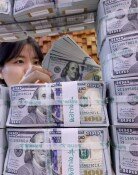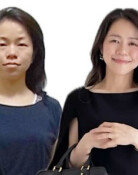In Korea, the Future of Marketing Is Now
In Korea, the Future of Marketing Is Now
Posted March. 14, 2007 07:08,
Samsung Electronics has recently given its air conditioner brand, Hauzen, the nickname: Winds of the Goddess. The name Bordeaux was given to its TV brand Pavv, and the name Asak (a crisp sound) to its kimchi refrigerator brand, but naming a product with something like a novels title is a first for Samsung in the home electronics industry.
The point of the name is to emphasize a stylish and sophisticated design by using the image of an elegant goddess, and to highlight the air conditioners technical features: strong winds that blow in the way the user wants.
Lee Jin-il, marketing director at Samsung Electronics, said, After three months of discussions, we ended up with a brand nickname that tells a story, adding, The element of myth was added to the brand so that it could have a new image and story.
These days, many companies strive to focus on dreamketing (dream plus marketing), which highlights the dreams and stories of a product or brand. It implies that emotional marketing is evolving where the image is emphasized beyond just quality and features.
Used As Motifs, Myths and Novels Play Role in Product Development and Advertisement-
What is your H? is advertising copy from Hyundai Constructions new apartment brand, Hillstate, which stirred consumers imaginations. Experts evaluated, Hyundai succeeded in boosting its recognition among consumers as well as portraying its image instead of the apartments themselves using the brand initial, H, as in honor, history and human.
There are various dreamketing techniques enabling products to be developed with a motif from myths and novels and marketed that way in advertisements and promotions.
Hera of Amore-Pacific launched Kathano Cream. Unlike existing cosmetics promoted based on their features and ingredients, this product has attracted consumers with its mythological product name. Kathano is the name of a pond where Hera, a Greek mythological goddess, came everyday for a bath to sustain her youth.
Director Park Soo-kyung at the Skin Research Institute of Amore-Pacific said, In promoting herbal cosmetics abroad, stories like folk tales about ginseng and how merchants in the Goryeo period turned ginseng into a global product are used for marketing, hinting, The products known this way never leave your mind.
Dreamketing, an Evolution of Emotional Marketing-
The use of storytelling to imbue stories and sensational issues into products and brands has emerged as more and more consumers are taking the time to regard product images and prioritize on their own values.
Recently, companies have gone beyond mere attention-grabbing storytelling as they focus more on marketing that stirs consumers imaginations and emphasizes the dreams and images that consumers seek.
Director Park said, As the society shifts its attention from materialistic abundance to mental richness, emotionally satisfying marketing strikes a chord, adding, These days, marketers have to turn themselves into storytellers.
A report released by the LG Economic Research Institute (LGERI) titled, 2007: Seven Business Management Keys, said one of the seven tasks for companies to overcome management uncertainties and make a success was dreamketing.
Park Jeong-hyun, senior researcher at LGERI, explained, As product features, quality and technical functions become more and more similar, companies will seek to differentiate themselves with a marketing technique that conveys a unique image and satisfies the dreams and images that consumers want.
imsoo@donga.com







